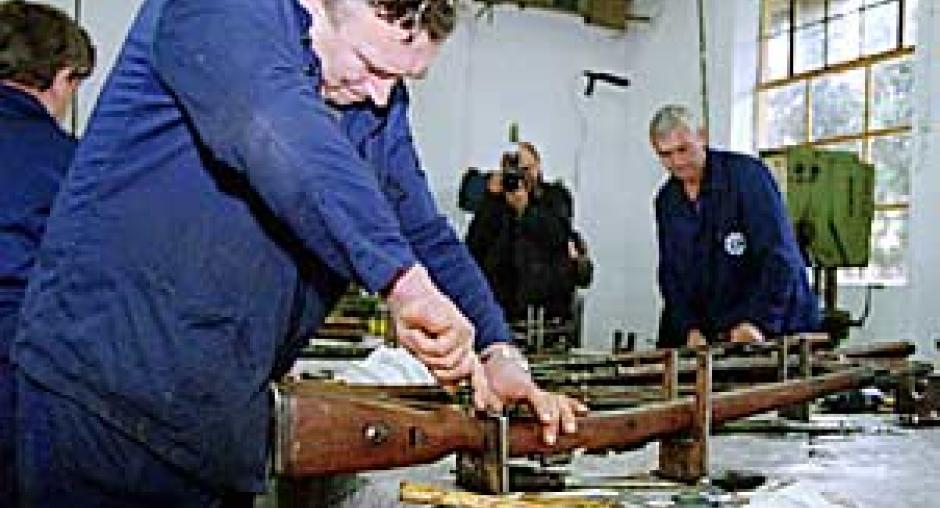OSCE-UN call for action to combat small arms trafficking

BRDO, SLOVENIA, 12 March 2003 - Measures taken to combat small arms trafficking in south-eastern Europe were subjected to the scrutiny of government and NGO experts at a two-day meeting held in Brdo, Slovenia. The meeting wrapped up today with a call to governments to further intensify their efforts to enforce international commitments and national legislation on small arms control.
The meeting, organized by the United Nations and the OSCE, tackled a number of key themes, including export controls, weapons collection and border management and security. Governmental representatives shared information on how far they have come in implementing the UN and the OSCE agreements on small arms and light weapons.
South-eastern Europe continues to suffer from the ill-effects of small arms proliferation. In opening the meeting, the UN Under Secretary-General for Disarmament Affairs, Jayantha Dhanapala, said the illicit small arms trade "has helped perpetuate intra-state wars, increased the risk of terrorism, set back economic development, and contributed to the deaths of thousands upon thousands of civilians."
The OSCE recognized the need to take action to combat small arms trafficking when it adopted the Document on Small Arms and Light Weapons in November 2000. At the UN, a global Programme of Action on the illicit small arms trade in all its aspects was agreed in 2001. Although the two agreements are mutually reinforcing, this is the first time the UN and the OSCE have come together to foster their joint implementation.
OSCE Secretary General Jan Kubis acknowledged that much progress has already been made in south-east Europe. "The governments of the region have recognized the need to take concerted co-operative action to rid societies of the scourge of these weapons," he said.
At the meeting, participants pointed to a few examples of good practice, such as the collection of weapons in Albania, or efforts taken to reform weapons export controls in Bosnia and Herzegovina, and Serbia and Montenegro. They also pointed areas where governments and the international community could do more, especially in creating capacity for effective enforcement.
Dimitrij Rupel, the Slovenian Foreign Minister, urged participants to address the broader political context of small arms control: "We must build and promote democratic institutions that will address the populations' longings for security and we have to consider how to stem the flow of illicit weapons."
The results and recommendations of the conference will be used to attract donor resources to holistic programmes that remove weapons from society and prevent their illegal re-supply. They will also be reported at a forthcoming UN meeting to review implementation of the 2001 Programme of Action, to take place from 7 to 11 July 2003, in New York.
The event in Brdo was made possible through the generous financial contributions of Germany, Hungary and the Netherlands.
